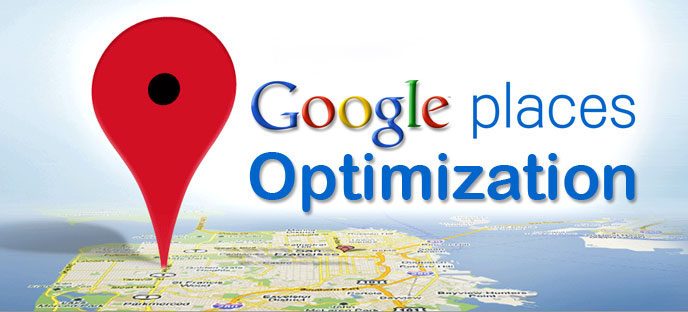Local businesses have to understand the power of Google Places. There is a reason why Google created a local web directory and it’s to optimize the presence of regional businesses looking to build a greater online presence. For example, over the last 5 years Google has seen a major shift in the user search pattern. Searchers have become more long-tail and targeted using local keywords, etc. Next, Google has created an interface which will be able to find businesses close to you by simply skimming over your IP address. Sometimes when people perform searches they don’t type “region†or “locality†within the search phrase and Google has to determine their preference. Google places are their solution and when people submit their business it interconnects with the search algorithm to give you better local search results. Next,
Local searches can be huge for businesses especially those just starting out. Imagine being listed within the top result in Google places? This can generate enormous traffic to your website and boost your brand awareness. However, there are a few fundamental things to keep in mind. Google has a sophisticated way of displaying what position a business will be listed in when local searches are performed. It’s based on several factors and having knowledge of each will help you optimize your local on-page elements.
Here are some of the important elements businesses should be aware of and these are the factors that Google takes into consideration when someone performs a local search.

The Business Signals
It’s no secret Google pays close attention to on & off page optimization elements. For example, there is no alternative to “target†keywords on page like title, description and within content. Next, Google skims through pages for proximity which it’ll pull directly from the business listing and content on the website. For example, a “contact us†page is necessary and you’ve probably noticed every website has a “contact us†page. It’s no secret that legitimacy of a website can be pulled from contact info (address, phone number, etc)
External Linking
When positioning your website Google will pay close attention to off-page signals like authority websites pointing to your page, etc. If your listed in Google Places chances are you’ll also have citations in other places and Google pays close attention to other business citations. Relevancy of external websites is important to keep consistency so if you have a SEO campaign in place, it’s important to pay close attention to the relevancy of the websites.
Social Signals
We can’t underestimate the power of social signals and it’s important to have a power social profile. The more followers you have the greater the chance of them sharing your content, etc. Having people share your business page, blog page, etc shows a high level of value. Next, social signals are a great way to attract authority people to share your content increasing the chances of authority link backs, etc. Here something you should do if you started a business and want to build brand awareness…
Start setting up social profiles on the following credible social networks…
- com
- com
- com (great for B2B)
- Google+
User Behavior
Another important ranking factor within Google Places is simply user engagement once they arrive on your website. This is obviously the same ranking factor for almost every website within the SERP’s. You can learn a lot from the way people interact with your website. For example, a high value website generally has lower bounce rate, higher internal click-through, comments, etc. However, these factors are a great indication to Google of a website that deserves to be ranked higher compared to others in the same niche. If you want your local business to outrank all others in Google Places then focus on improving…
- Click-through rate
- Mobile clicks
- Call to action
- Check-ins
- Offers
- Conversions
User Reviews
Within the Google Places interface visitors have the ability to leave reviews. Its helps them sort reputable business from the poor quality ones and Google can leverage this information to position them within the SERP’s. For example, instead of Google doing all the work to distinguish the credible businesses which can be a lot of work, it opted to create an interface that will allow people to leave reviews based on their experience. Even through this will not be the only factor ranking the business, it will play an important role. Some have said that user reviews in Google Places will have 10% importance in positioning websites within the SERP’s. Next,
Google will also check where the reviews are coming from, for example, a review from someone 2 miles away will hold more value than someone from 50 miles away.